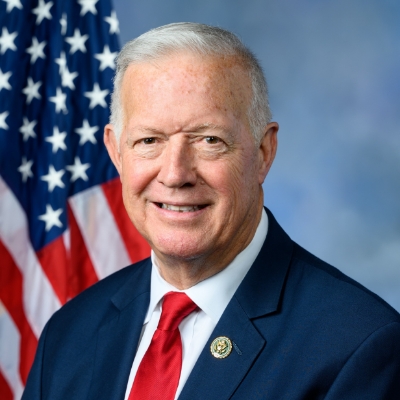- Home
- About
- Contact
- Services
- Art Competition
- Community Project Requests
- Congressional Commendations
- Flags
- Assistance with a Federal Agency
- Internships
- Military Academy Nominations
- Passports
- Presidential Greetings
- Tours and Tickets
- The Congressional Award
- Grants
- Water Resources Development Act 2026
- Additional Services and Resources
- Media
- Legislation
- Issues
- Resources
 U.S. REPRESENTATIVE
Randy Weber
Proudly Serving Texas' 14th District
U.S. REPRESENTATIVE
Randy Weber
Proudly Serving Texas' 14th District
Press Releases
Rep. Weber Introduce Securing Every Vector, Enhancing Networks Act
Washington,
December 12, 2024
Washington, D.C. - Today, U.S. Reps. Randy Weber (TX-14) and August Pfluger (TX-11) introduced the Securing Every Vector, Enhancing Networks (SEVEN) Act, a bill designed to strengthen America’s defenses against cyber threats targeting the Signaling System 7 (SS7) telecommunications protocol. The legislation aims to address these vulnerabilities by coordinating efforts across the government and creating a task force of cybersecurity experts to develop solutions. “For far too long, foreign adversaries have exploited critical weaknesses in the SS7 telecommunication protocol to track, spy on, and steal from Americans,” said Rep. Weber. “This cannot stand. The SEVEN Act delivers a decisive path forward to shut these vulnerabilities down and ensure our communications systems are secure—all without disrupting our networks. This is about protecting our citizens and safeguarding our national security, and we must act now.” “Our adversaries around the globe are exploiting vulnerabilities in the digital backbone of our telecommunications infrastructure to spy on everyday Americans,” said Rep. Pfluger. “The SEVEN Act will ensure the safety of U.S. networks by establishing a dedicated task force to address this issue head-on. We must act swiftly to protect our national security.” Read the bill here. Background: SS7 is a global telecommunication protocol that facilitates call routing, billing, and messaging. It is a crucial backbone of modern communication systems but has significant vulnerabilities. Hackers with access to a SS7-specific license (known as a “Global Title”) can exploit SS7 to intercept calls, read messages, and track locations. In June, Reps. Weber and Pfluger sent a letter to the Federal Communications Commission and the Cybersecurity and Infrastructure Security Agency (CISA). This letter was prompted by a CISA employee’s claim that unauthorized attempts to access user location data through SS7 and related protocols have occurred in the U.S. By addressing these vulnerabilities, the SEVEN Act seeks to protect Americans' communications and bolster national security. |
